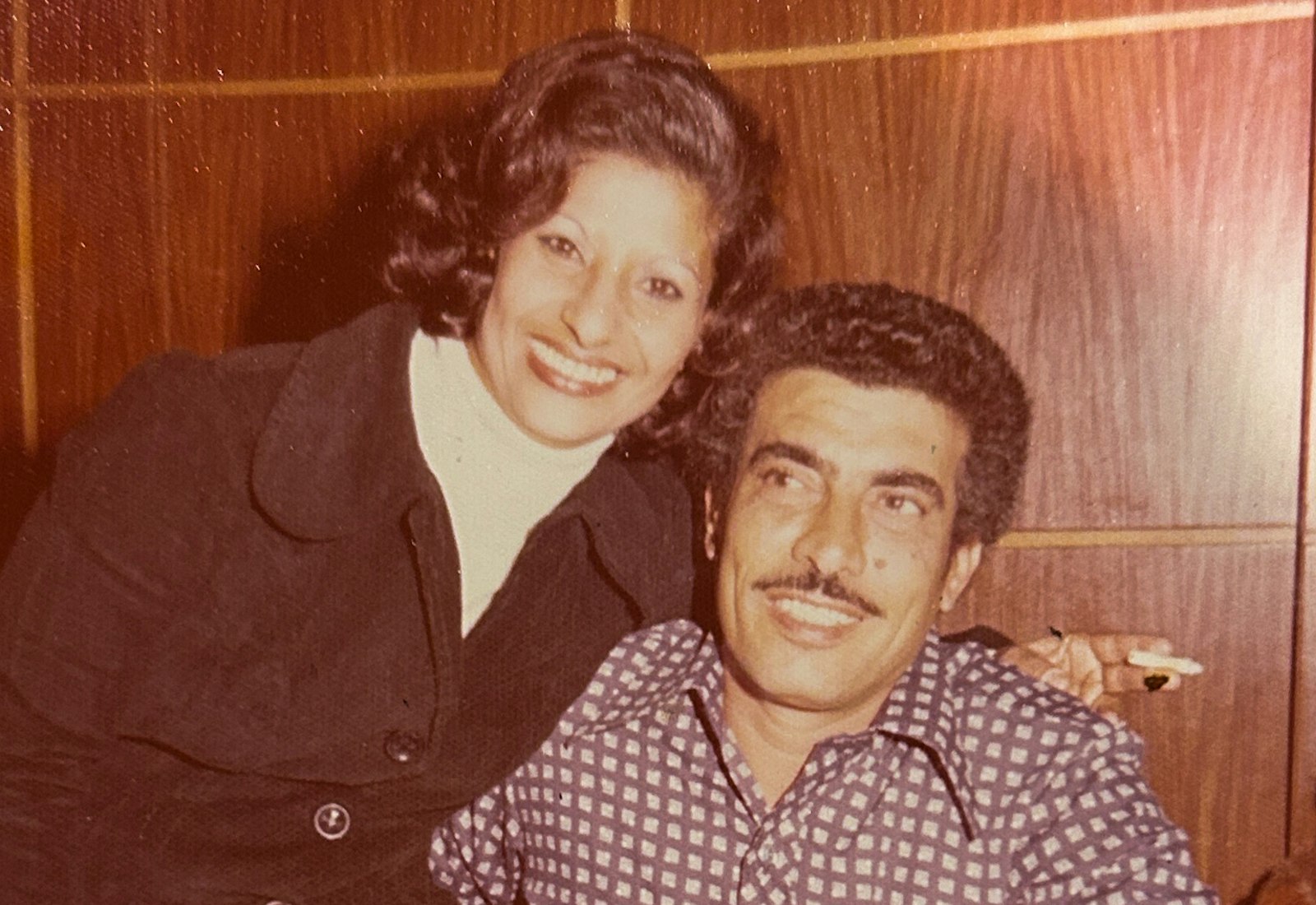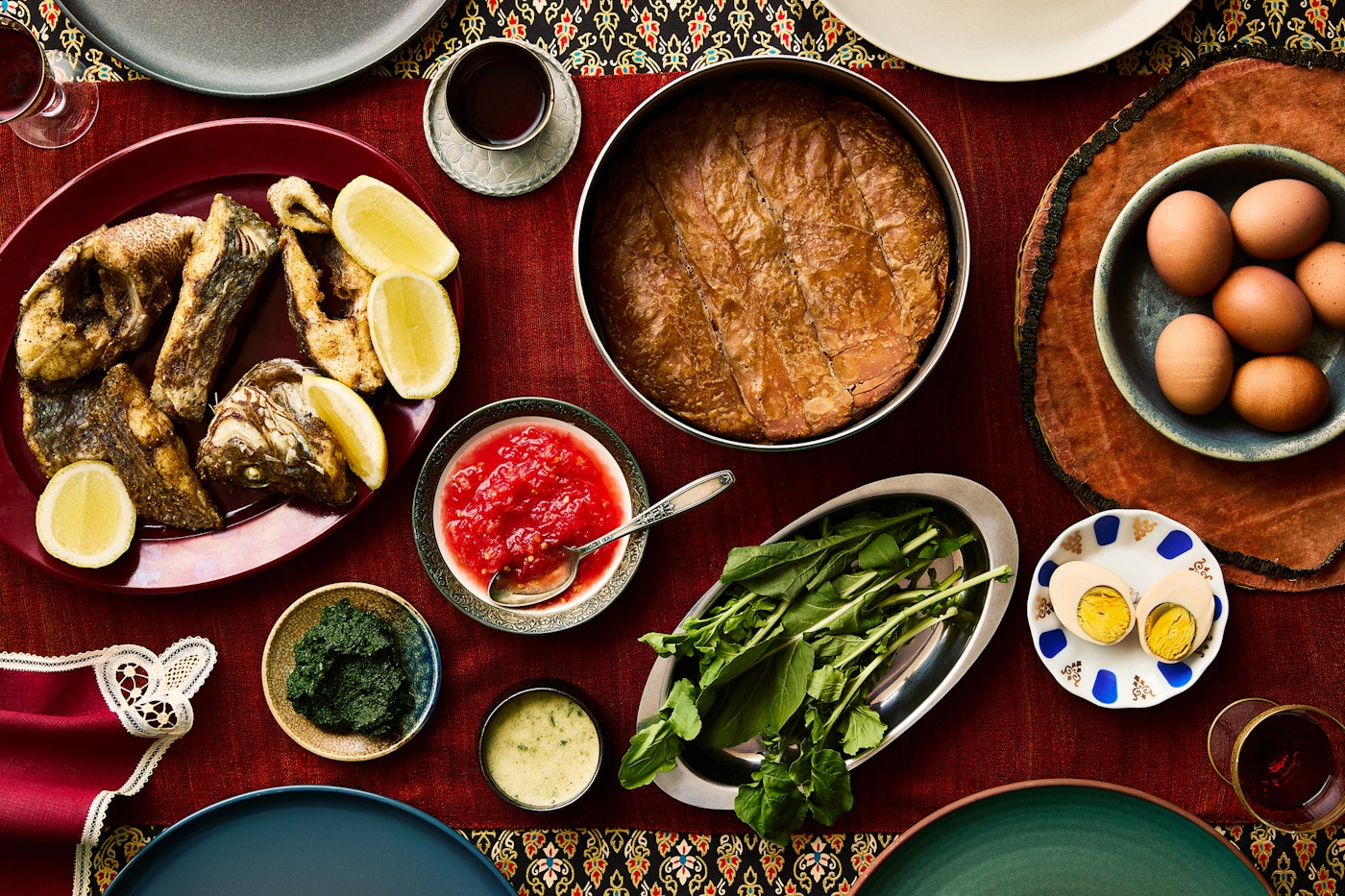Shared by Dana Schneider


“I think being Jewish in here [in America] was a struggle for me,” explains Dana Schneider, the filmmaker behind “Nice Jewish Girl,” which follows a Mizrahi actress living in New York City. Her family moved around when she was growing up, shuffling between New York, Chicago, and Israel. Even at a Jewish day school with 500 students in Chicago, Dana felt she stood out. She used to wonder why no one looked like her and her mother’s Yemenite side of the family. “My family is maybe a bit louder than Ashkenazi families, or the food's a little spicier, or it's a bit more colorful,” Dana shares.
Where she felt at home was in Yemenite and Israeli culture, which her mother Amalia worked hard to preserve when they lived in the U.S. Dana remembers a sign hanging on the wall that said in Hebrew: “We only speak Hebrew in the house.” And even before the days of Skype, there were regular phone calls with their relatives in Israel.
There was also the Yemenite food her Safta (grandmother in Hebrew) Malka cooked — especially her Saturday morning spread of rich overnight bread called jachnun served with grated fresh tomatoes, the spicy herb sauce schug, and tender brown eggs. Malka also accompanied it with fried St. Peter’s fish, which Dana’s grandfather Zion adored. “I was born loving that food so much,” Dana says.
Every Saturday Dana was in Israel, she would go over to Safta Malka’s home for the meal and then head to the beach. The house was always full on those Shabbats. “My grandmother's place used to be a revolving door,” Dana recalls. Family friends, aunts, uncles, and cousins would stop by, starting from early in the morning.
When Dana was away, she longed for the feeling that came from being with her family there. “This is what being Jewish means to me. This is what being Yemenite means to me. They were the roots for all of that and without those roots, I remember feeling very lost,” she shares. Being with them “was like coming up for air.”
Her family traces their heritage to Taizz and Sanaa in Yemen, both in the western part of the country. While her grandfather Saba Zion was born in Tel Aviv’s Yemenite Quarter in 1936, Safta Malka came from Taizz as a young child during World War II, arriving by a boat carrying livestock, a sheep boat, as Dana calls it. Like many Yemenite immigrants to Mandatory Palestine, they worked to fit into their new home country, setting aside old traditions. Two generations later, Dana is part of what she describes as a generational awakening in the Yemenite community that’s reviving music, art, and traditions. “It’s a really beautiful thing to see,” Dana adds.
For her, food has been a pathway to celebrating her heritage. Dana first made jachnun when she was a girl, but rededicated herself to understanding how to make it when she moved back to the U.S. as an adult and could no longer stop by Safta Malka’s home every Shabbat. Making jachnun took on even greater meaning after Malka passed away last year.
As Dana worked on her technique, she says that she could hear when she was working the dough correctly by the familiar clinking of her grandmother’s bracelets, which Dana now wears. “With Yemenite women, the older they get, the more you hear them,” she says.
